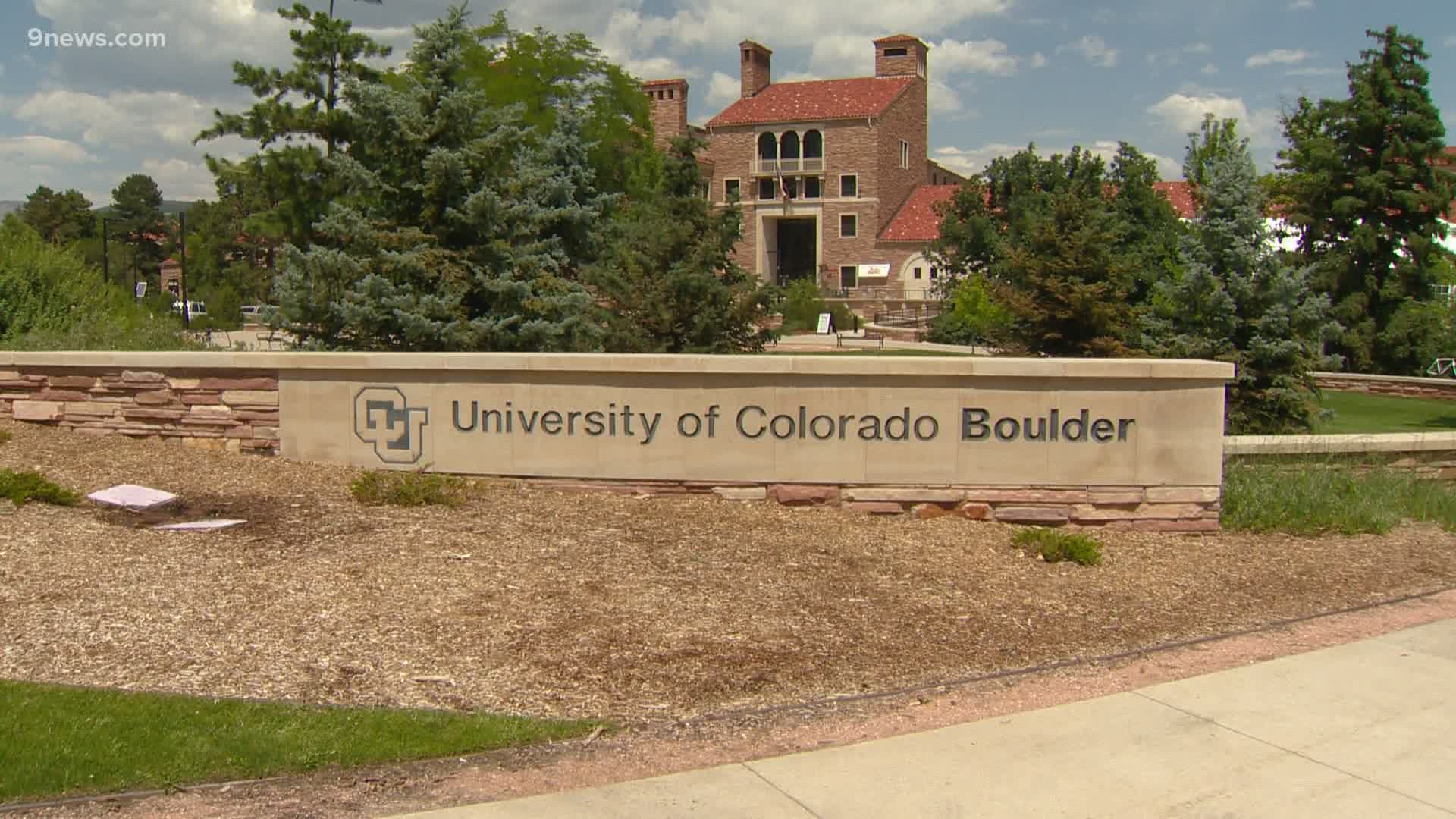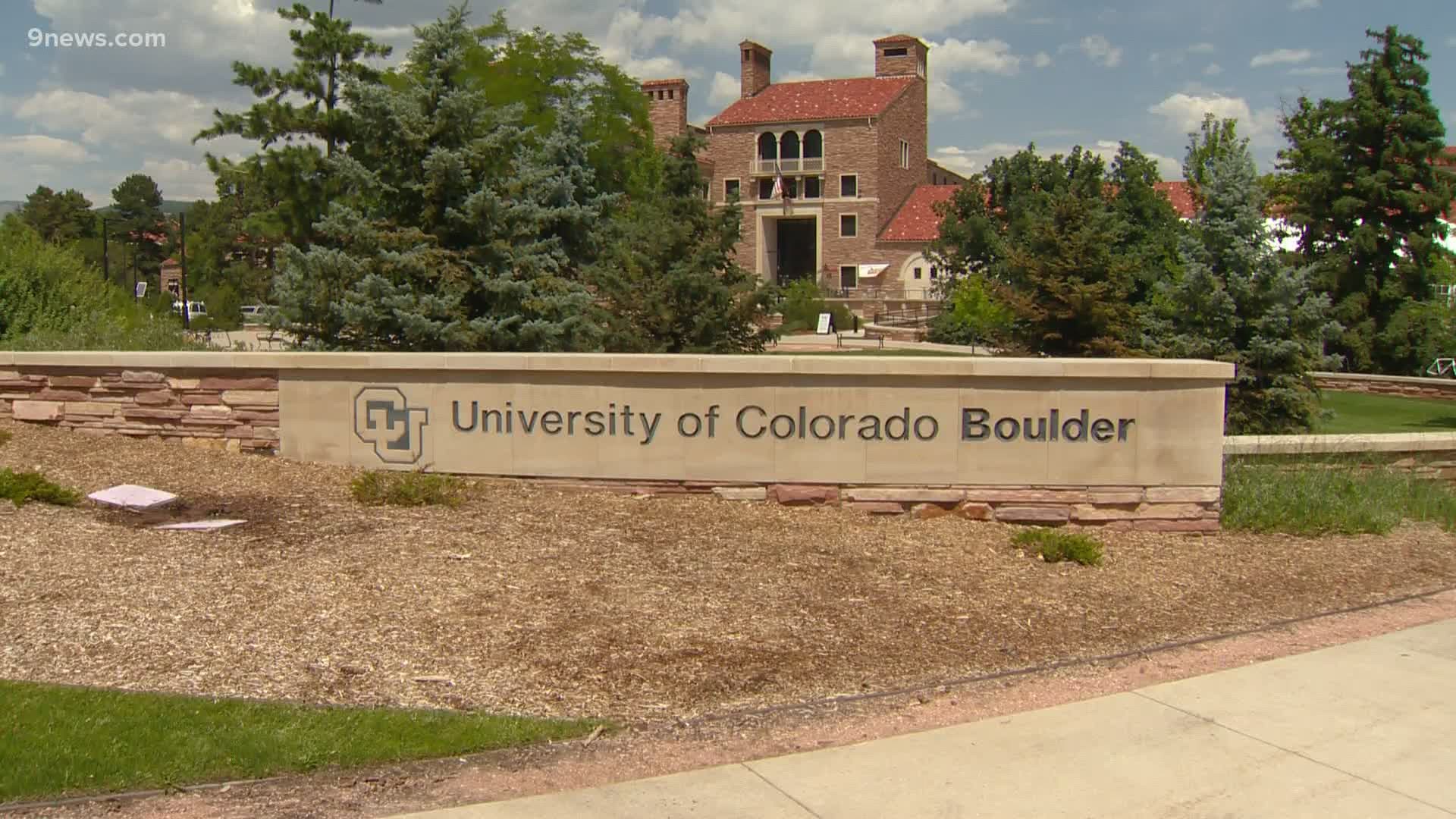DENVER, Colorado — The University of Colorado at Boulder is moving forward with a plan to welcome students back to campus for the fall 2020 semester. CU says it will deliver "flexible academic instruction" with some learning taking place in person and some remotely.
The school says it is working closely with Boulder County Public Health to develop a plan to protect students, staff and faculty while adapting to a rapidly-evolving situation.
"We will continue to monitor and see how things are and change our approach if we need to. We look forward to welcoming our students to campus," Melanie Marquez Parra, Chief Spokesperson for CU Boulder, told 9NEWS.
Boulder County recorded 500 COVID-19 cases in July, a one month record in the pandemic.
In addition to other safety measures, CU says testing, contact tracing, and surveillance techniques will play a key role in protecting the campus community amidst the pandemic.
We took our questions regarding testing and the return to campus to Parra. You can find other FAQs and further information regarding other safety measures on CU Boulder's 'Protect Our Heard' website.
(Editor's Note: Questions and answers may have been edited for context and clarity).
9NEWS: What is the strategy behind CU Boulder's testing protocols going into the fall semester?
Melanie Marquez Parra, Chief Spokesperson for CU Boulder: "One of the biggest efforts underway when it comes to testing is the requirement that all students moving into the residence halls must have a COVID-19 test within five days of moving in. We are asking, if they’re able, to get that test completed prior to arriving on campus within that five-day window. That will expedite their move-in process. We realize there are challenges right now in some areas in terms of getting the test completed and the results back in the time frame. So, we are establishing an opportunity for students to get tested when they arrive on campus as well.
What about students living off-campus?
Parra: The testing strategy for the fall semester is that we’re going to continuously evolve and look at what’s working and what maybe needs to be tweaked. We have a surveillance testing program that is going to be used in conjunction with our campus contact tracing efforts. Through campus contact tracing efforts, we’ll be able to identify particular groups or areas that may need some surveillance testing to be able to identify any asymptomatic cases. So, that’s going to be for the university as a whole. With the surveillance testing effort, if we see certain areas that we need to focus on, then we will.
We know that people who are asymptomatic can spread the virus. What is your testing strategy for individuals who show no symptoms?
Parra: The move-in testing process is very much a large effort to test mostly asymptomatic people. This process that we’re going to be seeing during the move-in week is one thing that’s really important. We want the community to know and understand this proactive effort will result in finding cases that maybe will come from someone who would not have gotten tested otherwise. This is intentional. We want to be able to see and be able to act if there are people who are arriving to live in the residence halls and help them to isolate if necessary. We’re expecting to see more cases reported during that time. We don’t want people to be too surprised by that. It's part of an intentional effort to create as safe of an environment as possible to hold the fall semester.
Where on campus can students get a COVID-19 test?
Parra: Through our medical services office, which is part of our student affairs division, we’ve established a public health clinic. Any student who is symptomatic or any student who is contacted through our campus contact tracing effort can get tested through medical services. Our campus contact tracing is also a very large effort underway and this is in collaboration with Boulder County health so that we can quickly interview individuals who test positive, find out who were their close contacts, contact them, and try to contain the situation and prevent an outbreak.
As a goal, we often hear people say, 'anyone who wants a test should be able to get a test.' Will that be the reality for those on campus during the fall semester?
Parra: We have focused on establishing the capacity to be able to test anyone who is symptomatic or anyone who we find through campus contact tracing or who may be at risk of having been exposed to the virus. That’s been the focus in setting up our testing program. In addition to that, we have the surveillance effort underway. Between those strategies, we are going to be testing as many people as we can to contain any spread of the virus.
The testing landscape changes constantly. We have to be ready to adapt, we have to be flexible through all of this. If we see there is an additional approach or a change in the approach that we need to take, then that’s something we’ll be doing in close collaboration with Boulder County Public Health and with our own experts. All of this is a constant effort to analyze and say, "let’s see how this is working. What do we need to do next, what do we need to change?"
In July, Boulder County registered its highest number of COVID-19 cases in one month. Is that figure a concern?
Parra: We are in close contact with Boulder County Public Health from the communications side, from the medical services staff who works closely with them, our leadership works closely with the leadership of them. There is a lot of communication that goes back and forth and we are going to continue that through the fall semester. In terms of knowing what the local conditions are, it’s something that’s taken into account. If there is a situation where local conditions perhaps are going to impact university operations, then our plan continues to be, and will always be, a flexible one. Right now, with the conditions we have, we are proceeding with our opening for the fall semester. We are going to continue to be in contact with them.
SUGGESTED VIDEOS: COVID-19 Coronavirus


